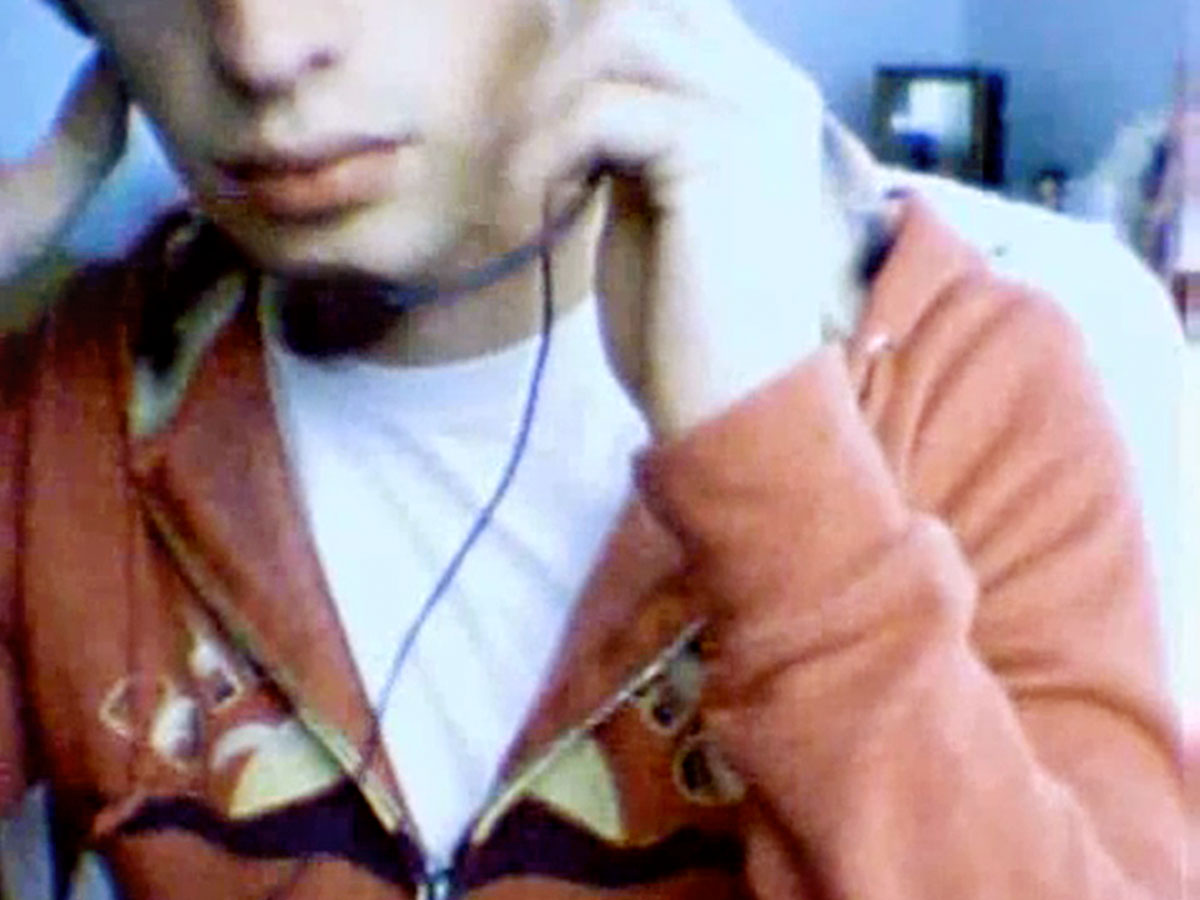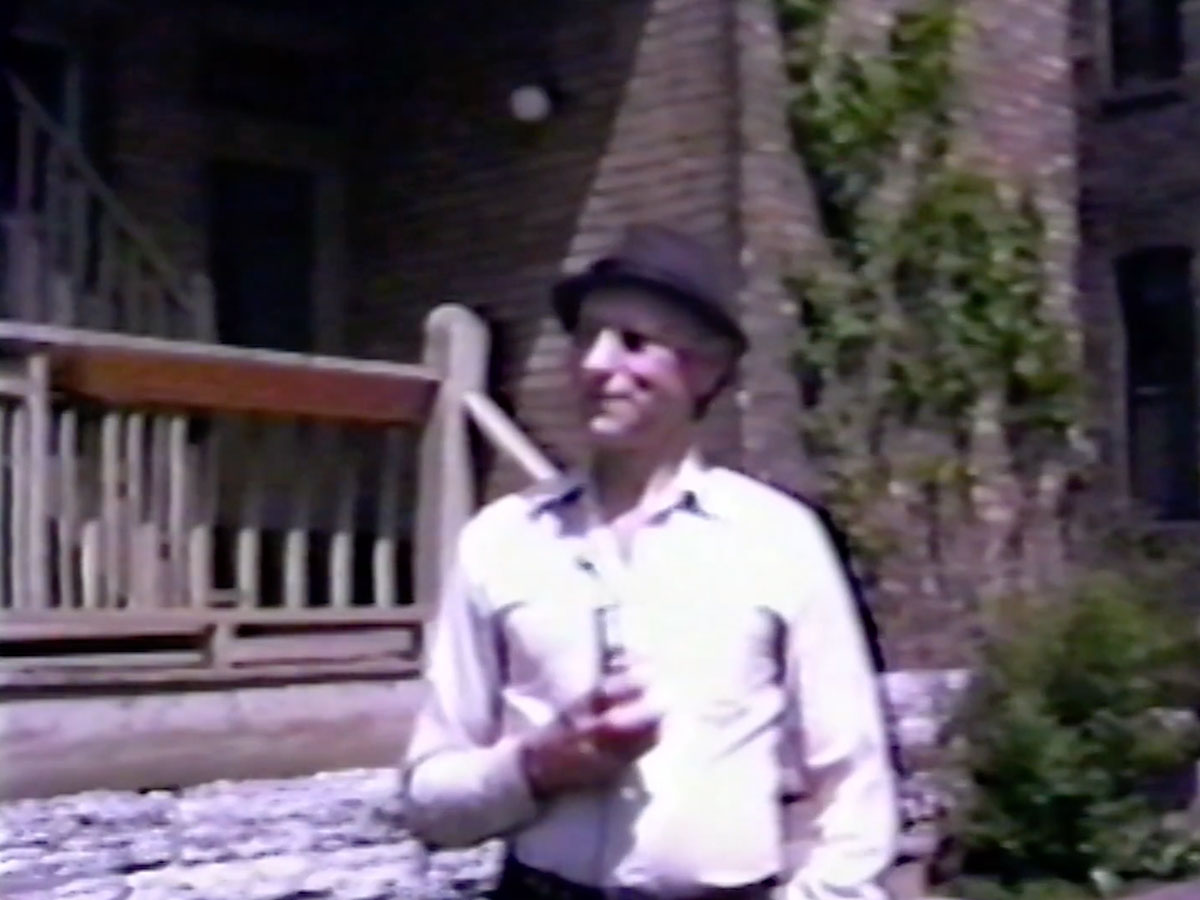
Because We Are Visual
In Because We Are Visual, Olivia Rochette and Gerard-Jan Claes explore the world of public video journals. The Internet and its online communities are intended to bring people closer together and to connect them. Yet it seems that this virtual world confronts vloggers more than ever with their own loneliness. This documentary focuses on the experience of the body within this virtual space. By means of visual material gathered from online sources, the filmmakers create a unique poetic realm in which thoughts, fears, desires, and worries are shared via webcam and merge together.
I often find myself daydreaming about the early days of cinema—what must it have been like to witness the kinematograph or to look through the eyepiece of a peep show box? To interact with these technologies, not knowing what grand paradigmatic shifts in visual history they would come to represent? But then I realise this generation has witnessed a similar shift: the launch of the Internet in the late 2000s.
Inevitably, some fourteen years after its making, Olivia Rochette and Gerard-Jan Claes’ Because We Are Visual (2010) now feels like it covers a time long gone by, one when we still said video blog instead of vlog. In this collection of video diaries garnered from online public sources and then organised into chapters, Rochette and Claes provide no audio commentary on the material but make implicit remarks solely through editing. Because We Are Visual has become an artifact of media archaeology, observing those strange stages when we were learning how to use video platforms and the awkwardness, innocence, and vulnerability that came with it. What the film captured was the birth of a digital visual psyche, an advent of a new way of interacting with the camera and of representing the self not only on the screen but also on the Internet.
In their montage of found videos, Rochette and Claes repeatedly draw attention to the camera as both an object and a gaze signifier. Different set-ups and screen resolutions, window reflections, and casual mentions of who uses what video camera all make conscious nods to the medium and to the act of seeing and looking. We see a moment in time that is ever so slightly aware of its own bizarre circumstances. There’s often the need to explain why someone—mostly teenagers and young adults—is filming. “To look at myself, to overcome shyness, to understand the power of my voice,” are the reasons they cite for turning the camera the other way round.
In its flux of confessions and personal stories, Because We Are Visual harks back to a time of unregulated online content that, in our current-day of 4K vlogs and HD front phone cameras, seems much more innocent: it was an era of the video diary that now feels earnest and endearing in its over-exposure and oversharing because of how unscripted everything felt—and essentially was. Almost no one in these vlogs tries to look pretty for the camera; the sound is bad, the angles are crooked, and everything is pixelated. Ugly, bare walls and untidy rooms glare back at us from the other side of the camera.
With their compendium of Internet videos, Rochette and Claes point to the birth of a new eye, the webcam-eye or the laptop-eye, a ready tool to expose the last inch of yourself, from your soul to your body. Some of these individuals tell us about their break-ups or about their restrictive parents; others show us beautiful rainbows or skate adventures; a pregnant woman shows us her belly, another woman is totally naked in front of the camera, pleasuring herself. This era gave way to an obsession with the self, but not yet to self-obsession; the new technology led to a genuine—if sometimes careless—impulse to record yourself and your daily life, all long before the dawn of content monetisation. To put it differently, it was a time when the incentive of the vlog was not economical (as it is for YouTube, TikTok, or OnlyFans influencers today), but sentimental. No one was trying to sell you anything, rather simply to tell you how shitty their day was.
Because We Are Visual touches a nerve because it shows a longing for connection, a desire to be seen—wasn’t this the great promise of the new virtual realms: to connect us all? There are hints of this: a video montage of birds flying across different skylines may prove that we are all moved by the same things, no matter where we come from. What also transpires, though, is an immense loneliness, a cry for belonging, despite the promised connection. The paradox of the video diary is just that. You are all alone in front of the camera, hoping that on the other end someone may listen.
Rochette and Claes’ montage perhaps feels like a celebration of the various ways we liked to bare it all in front of the camera in the late 2000s—but watching it nowadays, it can’t help but provoke the mourning of the collective glee at new technology and the kind of connection it promised during those years. In a time of monetised platforms and the vlog as a career option, we might miss that awkward chuckle of the early Internet when we were also slightly embarrassed that what we really needed was somebody to watch us.
In what one could call Jonas Mekas’ first video blog, the Lithuanian avant-garde filmmaker reflects on his life and the art of cinema and representation.



